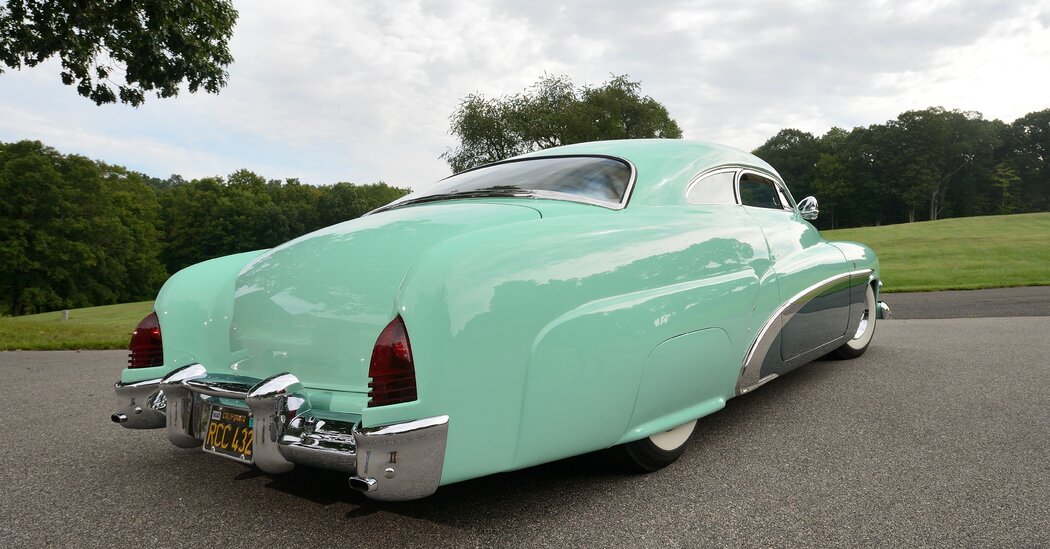The Hirohata Merc, a prime example of the custom car scene that blossomed in midcentury Southern California, notched two records in its sale.
A customized 1951 Mercury coupe astonished aficionados over the weekend, selling for $1.95 million at the Mecum collector car auction in Kissimmee, Fla., outpacing the vehicle’s presale estimate of up to $1.25 million.
The two-tone green coupe — known as the Hirohata Merc for the 21-year-old Japanese American Navy veteran, Masato Hirohata, who commissioned it in 1952 — is a prime example of the custom car scene that blossomed in Southern California at that time.
“This sale is a record for a 1951 Mercury, and the highest-selling custom car that wasn’t a movie or TV show car,” John Wiley, manager of valuation analytics at the classic car insurer Hagerty, said on Sunday. “The continuing relevance of the Hirohata Merc thrills us. A car that was customized almost 70 years ago, within the context of an emerging American art form, is still revered today.”
Few cars share the Merc’s pedigree. It was built by many of the most prominent names in the midcentury Southern California custom car scene, including George Barris, who went on to design iconic cars for TV shows such as “The Munsters,” “The Beverly Hillbillies” and “Batman.” It went on to win scores of awards and trophies.
The sellers were Scott and Darla McNiel, son and daughter of Jim McNiel, who bought the car in 1959 for $500, saved it and eventually restored it to its original glory before his death in 2018. The automotive historian Ken Gross and the classic car expert Wayne Carini helped the McNiel siblings broker the sale. The buyer’s name has not been disclosed.
The McNiels were long-term stewards of the car, and they hoped to maintain their family’s narrative connection to the Merc. “The thing that’s most important to me is that my dad’s impact on the history and legacy of the car stays attached to it,” Scott McNiel said. “And my fear that once it moves away from our family, it becomes just a Barris Kustom and Jim McNiel gets left out of the storytelling process.”
Apparently, this connection will persevere. “Darla kept a $10 bill that her father gave her at an early age,” Mr. Carini said. “Before the car went over the block for sale, Darla and I hid that same $10 in the car, so Jim will always be a piece of the car.”































